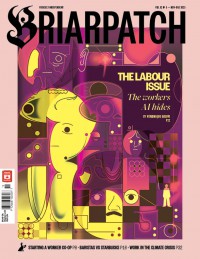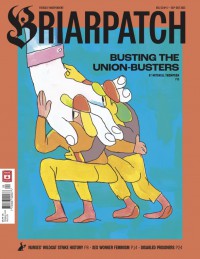-
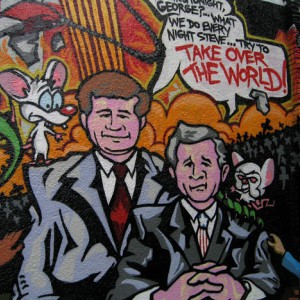 Magazine
MagazineNGOs and empire
This article is excerpted from Paved with Good Intentions: Canada’s Development NGOs from Idealism to Imperialism, released April 2012 by Fernwood Publishing fernwoodpublishing.ca
-
 Magazine
MagazineLand rush
Amid skyrocketing food prices, climate-related instability, and declining soil and water resources, wealthy investors have begun to size up the world’s farmland as both an investment opportunity and a hedge against food crises and political turbulence. Saskatchewan’s farmland has gained a particularly noteworthy reputation, making the province a global hot spot for farmland investment.
-
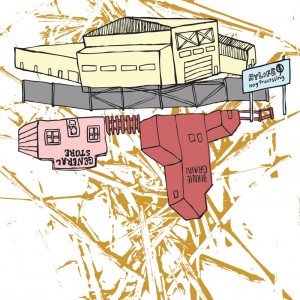 Magazine
MagazineLiving the HyLife
Over the past 40 years, increasing numbers of Prairie towns and villages are “dying” as people leave in droves to find work in the city. But aggressive recruitment campaigns by the hog industry are now re-populating and transforming the demographics of some of Manitoba’s smaller urban centres. What do these changes mean for these once-stereotypical Prairie towns and the growing populations of economic migrants who now call them home?
-
 Magazine
MagazineThe end of the strike?
Less than two months into their majority mandate, the federal Conservatives passed legislation that left the labour movement reeling. The Harper government’s use of back-to-work legislation to force an end to labour disputes at Air Canada and Canada Post was just the latest blow, however, to the labour movement’s most time-honoured tactic: the strike.
-
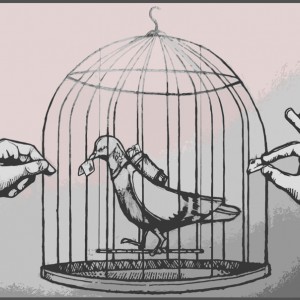 Magazine
MagazineThe confines of compromise
Has the labour movement become comfortable in a reactive, and even survivalist, mode of operating? What would a labour movement that strengthened and encouraged resistance and militancy, rather than managed it, look like?
-
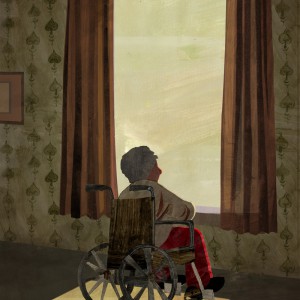 Magazine
MagazineCrisis in care
As the pioneer of privatized care in Canada, Ontario has opened the doors for a corporate takeover of long-term care homes, resulting in chronic understaffing by profit-seeking multinational providers.
-
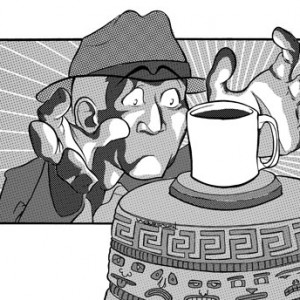 Magazine
MagazineFair trade and empire
Fair trade marketing and advocacy rely on the idea that fair trade increases connectedness between Global South producers and Global North consumers. But while fair trade does reduce the number of intermediaries in the supply chain as compared to the free trade system, it also serves to reinforce racist and colonial distinctions between the poor Global South farmer and the benevolent Global North consumer. While it may channel slightly more income into agricultural communities, it ultimately fails to address the colonial capitalist structures that produce the impoverishment of farmers on an ongoing basis.
-
 Magazine
Magazine‘Play in the Hay’ and other agricultural ventures
While there is a long history of some agri-tourist ventures like pick-your-own fruit farms, contemporary agri-tourist ventures are responding to specific contemporary realities: urban ignorance about food production and the economic need to instill a love and appreciation for local food in local customers.
-
_300_300_90_s_c1.jpg) Magazine
MagazineTurning the tide
The Conservatives won a majority in the recent federal election with a very simple core message. On the basis of their economic agenda and tough-on-crime program, Stephen Harper presented his party as the safe choice in difficult times.
-
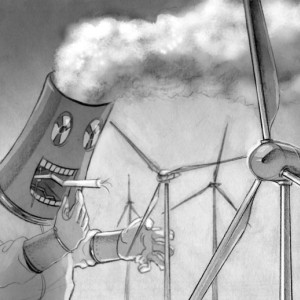 Magazine
MagazineLiving behind the uranium curtain
Saskatchewan is quickly joining Alberta in the continental corridor supplying oil and gas to the United States. This deepening integration with the resource-intensive U.S. economy, which leaves a toxic legacy on indigenous and Canadian lands, has its roots in a shift that began in the 1960s.
-
 Magazine
MagazineDirty deeds done dirt cheap
High resource prices have expanded Saskatchewan’s economy above the national average, but have left the incomes of Saskatchewan people below the national average. A major challenge for the province is to translate its economic prosperity into higher living standards for provincial residents.
-
 Magazine
MagazineHaiti and the Canadian labour movement
Trade union activists in Canada have initiated a project to deepen ties of solidarity with the people of Haiti and popular Haitian organizations. The Haiti Union Solidarity Fund was launched in January of this year by union members in the Canada Haiti Action Network.
-
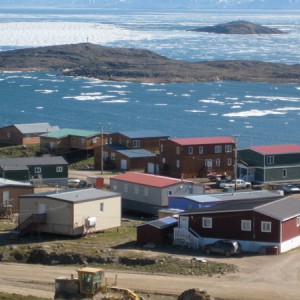 Magazine
MagazineNorthern exclusion
Nunavut, “our land” in Inuktitut, was the result of more than 30 years of negotiations and planning by the Inuit of the Eastern and Central Arctic. So why are these original inhabitants, the overwhelming majority of people in the territory, not the principal beneficiaries of their land’s economic development?
-
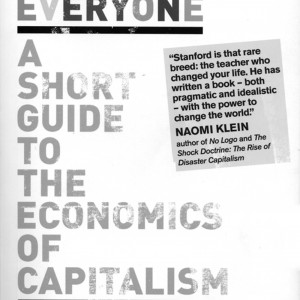 Magazine
MagazineEconomics for everyone
Book review of Jim Stanford’s Economics for everyone: A short guide to the economics of capitalism.
-
 Magazine
MagazineLetter from the editor
What happens when large numbers of people give up on the paradigm of “progress”—the idea that each generation will invariably live in greater material comfort and prosperity than the generation before?
-
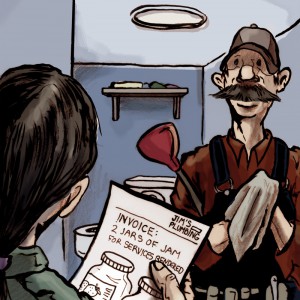 Magazine
MagazineWeird money
Could alternative systems of exchange like the Saugeen Trading Community become valuable tools in localizing our economies and strengthening our communities? Could they work to democratize our economic exchanges by keeping money in local hands and out of corporate coffers? With unprecedented global imbalances, rapidly rising oil prices, the decline of the U.S. dollar, and the word “recession” on the tongues of newscasters across North America, could these local systems of exchange offer a solution?
-
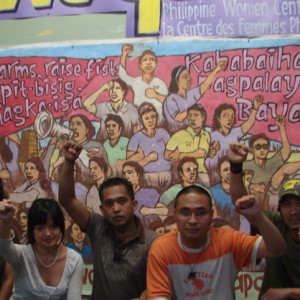 Magazine
MagazineVoices from the front lines
As part of an ongoing project, Making the Links Radio is conducting interviews and producing radio shows focused on immigrant communities in Canada. From these conversations, we bring you glimpses of three important sites of struggle against the exploitation and marginalization of (im)migrant groups in Canada: the Philippine Women Centres, the Workers’ Action Centre, and Justicia for Migrant Workers.
-
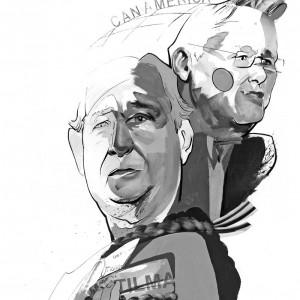 Magazine
MagazineRalph’s last laugh
Canada’s most ideologically right-wing provincial governments have joined forces in an agreement that erodes their own powers – and now they are trying to sell other provinces on the deal. Ellen Gould argues that the rest of Canada would be well-advised to reject the deal as an attack on their very right to govern.

